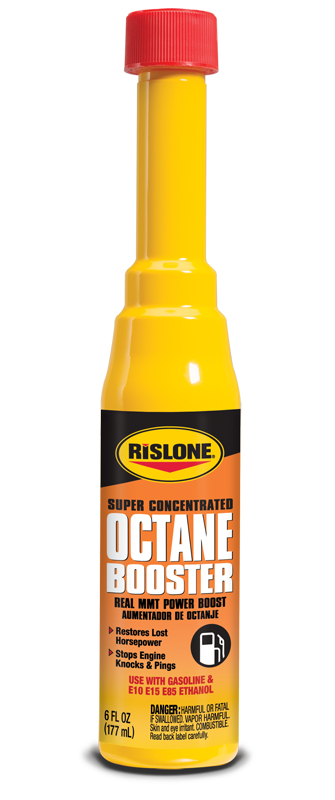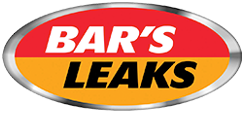Whenever you drive up to the pump, you are hit with an array of options. Should I go with regular unleaded or super gas? Plus or premium? What gas is better for my car?
If you have a new, luxury automobile, you may assume that you at least need plus-rated gasoline and that premium gas is even better. But this is not always the case.
Difference Between Plus and Premium Gas
To understand which gas is better for your car, you need to know what these ratings mean. It sometimes seems that gas manufacturers have added these labels to make them intentionally confusing. What you need to realize is that these designations — regular, plus, premium and super — have nothing to do with the quality of the gas you are putting in your car. They are simply a way of indicating the octane rating. Regular octane gas is usually 87 octane, plus is 89, premium is 91 and super is 93.
Is Premium Gas Better for All Cars?
But still, you may be wondering, is premium gas better for my car? After all, premium is more expensive than plus, and plus is more expensive than regular, so higher octanes must be better, right? Not necessarily.
First, let’s talk a little bit about how your combustion engine works. Fuel and compressed air mix in the combustion chamber, and when you turn the ignition, it creates a spark that ignites that mixture, which generates the combustion to power your car. In some situations, that mixture is unstable and ignites prematurely. This is called pre-ignition and also may be referred to as engine knocking, since you will hear a knocking sound when this happens.
Pre-ignition is extremely bad for your car. If you have a modern, luxury automobile, there will be sensors in the engine that adjust the mixture to deal with pre-ignition, but this will hurt your fuel economy. It is better to avoid knocking altogether.
And how can you prevent knocking? You guessed it — by using the right octane gasoline in your car. The octane is just a measure of how resistant your fuel is to igniting prematurely. Luxury cars often have a higher fuel-air compression ratio to generate greater power and performance. The downside of this is that it makes pre-ignition more likely. This is why for these cars, you need a more knock-resistant, or higher octane, gasoline to resist pre-ignition.
If Premium and Super Aren’t the Best Gas for My Car, What Is?
 When it comes to gasoline ratings, all that matters is that the octane you are putting in your car is equal to or greater than the recommended octane. Your gas cap area and your owner’s manual will tell you what octane you need. If it says 91, then that typically means you want premium gas in your car. If it says 93, you want super. Go by the octane listed on the pump, not by the names, as they may vary depending upon where you are.
When it comes to gasoline ratings, all that matters is that the octane you are putting in your car is equal to or greater than the recommended octane. Your gas cap area and your owner’s manual will tell you what octane you need. If it says 91, then that typically means you want premium gas in your car. If it says 93, you want super. Go by the octane listed on the pump, not by the names, as they may vary depending upon where you are.
If you use an octane or type of gas lower than the octane recommended by the manufacturer, you could hurt your fuel economy or damage your car. However, the reverse is not true. A higher octane will not deliver better performance than the recommended octane for your vehicle.
Think of it this way. If you are trying to build a fence to keep a dog out of your yard, and the dog can jump no higher than four feet, you don’t want to build a three-foot fence, but it doesn’t matter whether you build a five-foot fence, a premium six-foot fence or a super seven-foot fence.
In essence, trying to save money by going with a lower rating of gasoline than recommended will cost you in the long run, but spending more to go with a higher rating will not save you in the long run. It is best to use exactly the rating your manufacturer recommends. If your vehicle offers you a choice of two octanes, it is possible that the higher one will be better for your car. If not, stick with what is recommended.
If you have a diesel vehicle, none of these issues matter. Diesel engines have their own system, and you need to simply fill your tank with diesel every time.
If you find yourself with a foreign car that was not built for sale in the U.S., it may have a research octane number, or RON, instead of an octane rating. Check a comparison chart to find the right octane, as the numbers will not be the same. For example, RON 95 is the same as 87-octane in the U.S.
Using Additives Versus Premium Gas
 Can you save money by putting performance-enhancing additives in your oil and using regular gas instead of using premium gas? While the right engine additives can do great things for your car, only certain ones will increase your fuel octane to any appreciable degree (our sister brand Rislone has a great octane booster, but you still shouldn’t put in a lower-grade fuel and then try to “make up” the difference with an additive). It is simply not worth the risk to try to save money by putting a lower octane gasoline in your tank than is recommended. You worked hard to be able to afford a luxury or performance automobile — you should treat it with the care it deserves.
Can you save money by putting performance-enhancing additives in your oil and using regular gas instead of using premium gas? While the right engine additives can do great things for your car, only certain ones will increase your fuel octane to any appreciable degree (our sister brand Rislone has a great octane booster, but you still shouldn’t put in a lower-grade fuel and then try to “make up” the difference with an additive). It is simply not worth the risk to try to save money by putting a lower octane gasoline in your tank than is recommended. You worked hard to be able to afford a luxury or performance automobile — you should treat it with the care it deserves.
That being said, Bar’s Leaks offers many engine additives that can improve your car’s performance independent of the octane rating. For example, Bar’s Leaks Engine Repair is a two-part formula that can clean your engine, restore performance, stop noise and smoking and seal leaks.
If you take care of your car, it should last a long time. Make sure you do so by using the right type of gasoline and the right additives whenever necessary. For help finding stop-leak and engine repair products in your area, visit our Bar’s Leaks locator page. And if you have any questions about fuel octane, oil leaks or anything pertaining to your car’s engine and how to fix it, please contact us at Bar’s Leaks today.

